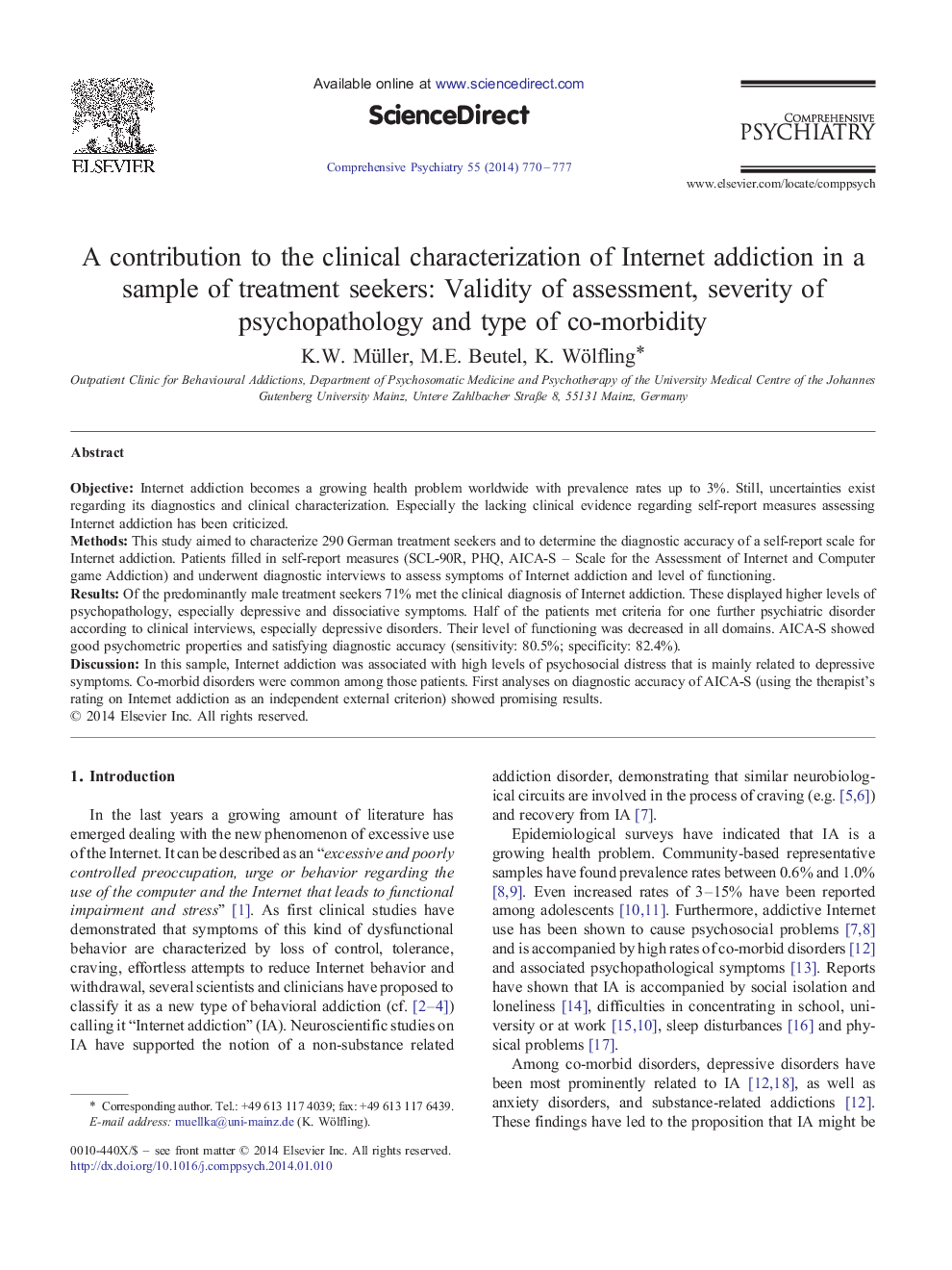| کد مقاله | کد نشریه | سال انتشار | مقاله انگلیسی | نسخه تمام متن |
|---|---|---|---|---|
| 317414 | 538167 | 2014 | 8 صفحه PDF | دانلود رایگان |
ObjectiveInternet addiction becomes a growing health problem worldwide with prevalence rates up to 3%. Still, uncertainties exist regarding its diagnostics and clinical characterization. Especially the lacking clinical evidence regarding self-report measures assessing Internet addiction has been criticized.MethodsThis study aimed to characterize 290 German treatment seekers and to determine the diagnostic accuracy of a self-report scale for Internet addiction. Patients filled in self-report measures (SCL-90R, PHQ, AICA-S – Scale for the Assessment of Internet and Computer game Addiction) and underwent diagnostic interviews to assess symptoms of Internet addiction and level of functioning.ResultsOf the predominantly male treatment seekers 71% met the clinical diagnosis of Internet addiction. These displayed higher levels of psychopathology, especially depressive and dissociative symptoms. Half of the patients met criteria for one further psychiatric disorder according to clinical interviews, especially depressive disorders. Their level of functioning was decreased in all domains. AICA-S showed good psychometric properties and satisfying diagnostic accuracy (sensitivity: 80.5%; specificity: 82.4%).DiscussionIn this sample, Internet addiction was associated with high levels of psychosocial distress that is mainly related to depressive symptoms. Co-morbid disorders were common among those patients. First analyses on diagnostic accuracy of AICA-S (using the therapist's rating on Internet addiction as an independent external criterion) showed promising results.
Journal: Comprehensive Psychiatry - Volume 55, Issue 4, May 2014, Pages 770–777
